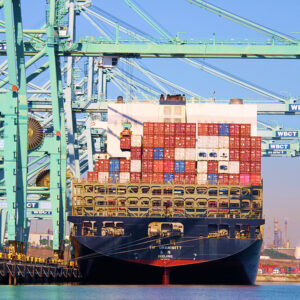The global supply chain disruptions caused by the COVID-19 pandemic were a wake-up call to America’s alarming overreliance on imports of a broad range of critical products and materials. In the harrowing months that brought shortages and price spikes of essential goods — everything from personal protective equipment for first responders to computer chips for cars — bipartisan consensus formed around taking decisive action to bring critical industries home and reenergize our industrial base.
The most acute months of crisis are over. There’s some critical progress worth celebrating in our efforts to shore up our supply chains — a reshoring of semiconductor manufacturing and surging investments in battery production are two notable examples.
However, with too many essential products and materials, our efforts to ramp up domestic production have fallen short.
In fact, for some essential supply chains, deeply concerning trends are moving from bad to worse. There is no more troubling example than the nation’s mineral supply chains — the front end of our national, economic and food security.
U.S. mineral import reliance has never been greater, and our dependence on geopolitical rivals — notably China — or unstable nations for our mineral imports is spiraling out of control.
The problem isn’t a lack of domestic resources — the United States has vast mineral reserves — but a somewhat incoherent and often counterproductive policy.
Instead of leaning into our domestic mineral potential and fixing a duplicative mine-permitting system, which is handcuffing our ability to meet demand, we continue looking overseas for the minerals we could produce at home. We’re even backsliding on important policies aimed at supporting domestic production.
Consider an effort to open our fertilizer supply chains to increased competition from state-backed phosphate producers in Morocco and Russia. While not given the same kind of attention as rare earth or battery minerals, fertilizer supply chains are the very foundation of our food security. And our domestic fertilizer industrial base is under alarming pressure.
The U.S. government put a countervailing duty to offset illegally subsidized phosphate products from Russia and Morocco, but there’s mounting pressure to lower it. This misguided effort, sold as a vehicle to reduce costs for American farmers, could hand our fertilizer supply chains to Russian oligarchs and a state-backed phosphate producer in Morocco with labor and environmental standards that pale in comparison to ours. Allowing Russian and Moroccan entities to seize our fertilizer supply chains could make rebuilding them domestically difficult, if not impossible.
This is the opposite approach of what we should be doing to fortify our supply chains. We’ve seen these mistakes before. The United States was once the world’s largest rare-earth producer, but we allowed Chinese companies to swallow that industry. China now controls 70 percent of the world’s rare-earth production and has placed itself directly in the center of countless critical supply chains essential to our economic and national security. We’re now scrambling to undo the damage caused by our policy failures.
We can’t make those mistakes again. We must move now to secure our economic and national security by building reliable and lasting domestic mineral supply chains under world-leading environmental and labor standards. We must focus on ramping up production at home instead of deepening our mineral import overreliance.
Continuing to offshore our mineral supply chains is policy malpractice. This is a moment to reshore and reinvest in American workers and industry, not let critical parts of our industrial base slip through our fingers.

